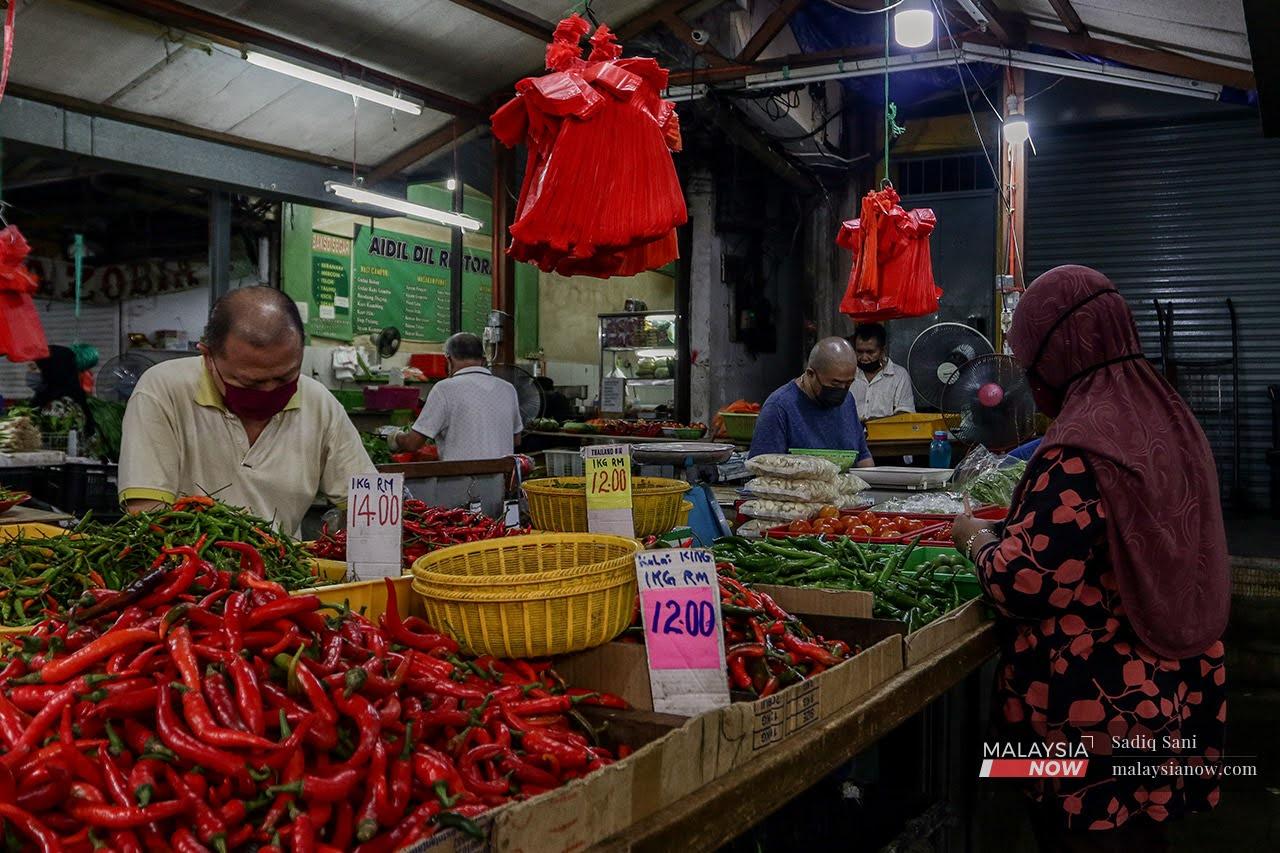Subsidies, the answer to rising price of goods?
Food subsidies, direct cash aid and food stamps are floated as possible solutions to the problem.
Just In
Economists have suggested the giving of targeted aid amid concern over the recent increase in price of raw goods and vegetables and declining purchasing power as the country continues to struggle with the economic impact of Covid-19.
The price of vegetables and chicken, among the staple food items for many, has reportedly risen over the past month due to problems in the supply chain amid an increase in demand after the government eased restrictions on interstate movements.
Other factors that have played a role include a shortage of labour in the agricultural sector and the soaring price of imported chicken feed.
Ahmad Razman of Universiti Putra Malaysia said the government should provide aid in the form of subsidies for basic items such as cooking oil and petrol.
“Without subsidies, this will also affect the cost of other goods,” he told MalaysiaNow.
“High petrol prices will increase the cost of transportation, and expensive cooking oil means the cost of cooked food will go up.”
However, he said such aid should be given on a targeted basis, focused on vulnerable groups such as the low-income or B40 due to the government’s financial constraints.
He said the government is still capable of providing assistance in this manner due to the increase in price of petroleum commodities and palm oil which have brought about extra revenue.
“For example, the increase in palm oil prices gives the government additional revenue through profit tax,” he said, adding that the amount collected is about RM400 million each quarter.
“Meanwhile, high petroleum prices allow Petronas to give the government higher yearly dividends.”
However, Adilah Zafirah Mohd Suberi from the IRIS Institute said vulnerable groups would benefit more from targeted cash aid.
“Subsidies are not very effective and are only a short-term solution,” she said, adding that they would only add to the government’s financial burden.
Speaking to MalaysiaNow, she said a long-term solution would involve increased productivity and market access.
Acknowledging that it would take time to achieve a balance between supply and demand, he said this would nonetheless reduce dependence on supplies from foreign countries and boost employment opportunities.
According to the 2020 audit report, a total of RM77.36 million approved for 12 projects under five ministries and departments was not touched at all.
Of this amount, RM44.27 million set aside for seven projects under the agriculture and food industry ministry had not been used.
These included crop commodity development projects, cattle projects for beef, and projects for animal services departments and livestock enterprises.
Economist Barjoyai Bardai said the government should promote farmers markets on a large scale for the provision of essential items.
“We could support these markets to sell goods at cheaper prices by sourcing supplies either locally, direct from farms, or imported goods to make sure the price is as low as possible.
“We must open as many farmers markets as possible in every community,” he said.
He also suggested subsidies in the form of food stamps that could be distributed at such markets.
“This should be done with proper records and internal control mechanisms,” he added.
Subscribe to our newsletter
To be updated with all the latest news and analyses daily.
